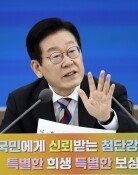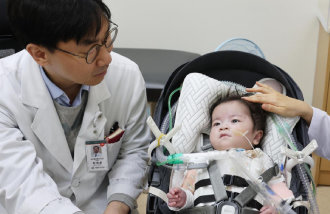[Editorial]Bright days-banking; Dark nights-medical
[Editorial]Bright days-banking; Dark nights-medical
Posted July. 13, 2000 17:56,
The contrasting postures adopted by the negotiators in view of the dramatic compromise in banking sector with that of the continued spiral of deterioration in the medical reform cannot but bring a befuddlement to many watching in the sidelines.
While still retaining certain points of contention, the successful prevention of the banking labor unions` walkout which could have resulted in financial crisis has shown the nation an effective model and example of crisis management by the government and the labor union leaders. In our society facing repeated discords in too many sectors, the diffusion of the bank unions` treat of strike is nothing less than a great relief.
In the aftermath of the economic crisis and the structural re-tuning of the banking industry, the banking labor unions have not had a day without fear of human resource streamlining. However, they have conceded that the principles of banking reform are necessary but have successfully received the pledge that the government will not be involved it the management of the banks but give the boards of bank directors the independent control. The images of the negotiators holding consecutive talks lasting into the wee hours of the morning without resorting to bombastic rhetoric brings a sense of pride and admiration to many who had feared becoming victims in the strike.
The compromise was a win-win model which was made possible because both principals in the talks held their grounds firmly on certain points but also conceded when necessary.
However, a different picture is emerging in the case of medical reform which is still in a great confusion. If left un-addressed, the medical reform which attempted to prevent abuse and over-consumption of medicinal drugs could worsen the situation.
It is a matter of fact that transforming such old practice in the medical field is a difficult one. With the conflicting viewpoints of the pharmacists and medical doctors on the reform which could bring greater inconvenience to the patients, the successful negotiation in the medical reform requires a degree of self-sacrifice for the doctors, the pharmacists and the patients.
With the situation unresolved satisfactorily, the Ministry of Welfare and Health has neglected to adequately address the fundamental question of conflict between the pharmacists and medical doctors. Their eyes seem focused only toward the date of implementation. With every protest by related principle in the medical reform package, the government has merely applied temporary bandages without addressing the festering wound beneath. Such attitude by the government negotiators have only worked toward loss of confidence by both the pharmacist and the medical doctor camps.
It is time now for the Ministry of Welfare and Health to stand its ground, not being swayed by either groups, and begin the reform process anew. They must open their ears and minds to the position of both camps and bring about a successful meeting of minds as they had done in the financial sector. Such flip-flopping of issues and agreements at every turn only reveals the spineless, ulterior-motive driven double face of the Ministry. Only when the three constituents come to the table in all honesty, a way out of this current crisis can be found.
Should it be necessary for the three camps to come together for meetings which last deep into the night, so be it if a feasible medical and pharmaceutical policy can be formulated.







